The Delegation of EU to Türkiye held its first youth consultation

Deepening EU–civil society dialogue
These structured dialogues are part of the EU Delegation’s ongoing efforts to strengthen its partnership with civil society organisations (CSOs) in Türkiye. They serve as a platform to assess needs on the ground, identify challenges and opportunities, and explore the impact of EU-funded initiatives.
In his opening remarks, Jean Barbé, Head of the Civil Society and Fundamental Rights Section, emphasised the role of youth in a democratic society and reiterated the EU’s commitment to supporting civil society as a political and programming priority.
Eser Canalioğlu Çınar, Programme Manager at the Delegation, gave an overview of the EU’s support to civil society. She outlined key priorities and presented current and upcoming programmes for civil society and human rights.
A generation navigating complexity
The consultation brought together a diverse group of youth representatives and organisations, who shared their experiences, concerns, and aspirations. Their contributions reflected the multi-faceted difficulties facing young people in Türkiye today—from high unemployment, poverty, and housing insecurity to mental health struggles, restrictive gender norms, and unequal access to education and opportunities. Participants painted a vivid picture of a generation trying to navigate complexity, often without the necessary support, resources, or safe spaces to do so meaningfully.
A recurrent theme throughout the discussion was the shrinking civic space and limited opportunities for youth political and civic participation. Many participants stressed that young people are not only disproportionately affected by these trends but are often excluded from decision-making processes that directly shape their futures.
Political momentum and disconnection
The recent events of 19 March—the detention of Istanbul’s mayor and the subsequent public demonstrations—inevitably came up in the conversation, illustrating the importance of youth engagement in political life.
Yet, as Nevzat Taşçı, Director of the Arayüz Campaign, pointed out, young people remain vastly underrepresented in politics, and systemic barriers make it difficult for them to participate meaningfully. He also noted that some youth feel disconnected not only from political institutions but also from existing civil society structures, which may not always reflect their values or lived realities.
Climate, values, and the struggle for survival
Gaye Tuğrulöz from the Social Climate Association drew attention to the sensitivity of young people to the climate crisis—an issue that often fails to receive sufficient recognition in Türkiye’s policymaking arena.
Ezgi Gedik, representing GoFor, a youth umbrella network, spoke of the civic momentum sparked by the March events. She stressed the need to anchor youth engagement in shared values—democracy, human rights, and gender equality. “The biggest challenge facing youth organisations isn’t sustainability,” she said. “It’s survival.”
Voices from the margins
Baran Çağlar Çetinkaya from the Zero Discrimination Association wants to see less focus on “protecting youth from harmful habits” and more of empowering them to participate in civic and political life. He described how Roma youth face double exclusion—both socioeconomic and sociocultural—leaving them vulnerable to systemic discrimination. He called for more inclusive decision-making processes where youth are seen not only as beneficiaries but as active initiators.
Rethinking support for youth initiatives
From a different angle, Merve Kavas from Yekpare highlighted the lack of financial and societal support for young entrepreneurs. The pressure of combining work and studies leads to high stress and burnout, she said, underlining the need for better support systems for youth in the social economy.
Emre Güzel from Roof Coliving spoke about reimagining public spaces through participatory design and placemaking practices. Rooted in the values of solidarity, urban commons and democratic participation, Roof Coliving develops inclusive spatial processes that transform urban environments into shared, accessible, and community-led spaces.
Other participants raised critical issues, including the marginalisation of rural youth, the lack of safe spaces—particularly for young women in public dormitories—difficulties in accessing funding, discrimination against LGBTQI+ youth, the prevalence of unpaid internships, and deepening urban inequalities and digital exclusion.
“Not just the future—the present”
The Head of the Delegation of the European Union to Türkiye, Ambassador Thomas Ossowski says: “Young people are not only the future—they are the present. We believe that meaningful youth participation is vital in building a resilient, democratic, and inclusive Türkiye. This consultation is a step towards ensuring that young people are empowered to lead, as well as being heard.”
While rich in insights, the consultation’s greatest value lay in creating space for dialogue—building trust and offering a platform where youth could speak openly about their frustrations and hopes.
This consultation is neither the beginning nor the end. It is part of an ongoing dialogue—one the EU is committed to continuing. With civil society. With youth. And with all those who are working for a more inclusive, open, and rights-based Türkiye.
Photos:
- Group photo
- Emre Güzel from Roof Coliving speaking about placemaking practices
- Berfin Atlı from SPoD talking about “the EU dream”
- Delegation listening in
- Nevzat Taşçı talking about youth political participation
- Gaye Tuğrulöz talking about the climate crisis
- Elif Fırıncıoğulları and Baran Çağlar Çetinkaya
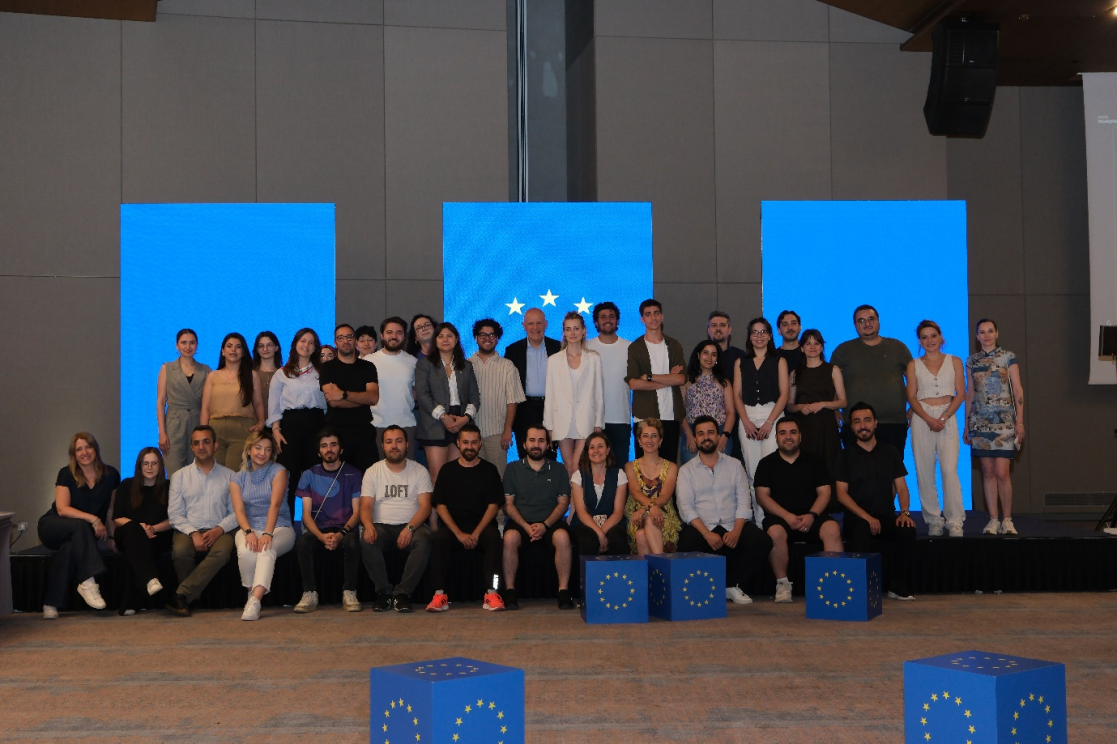
EUROPEAN UNION, 2025
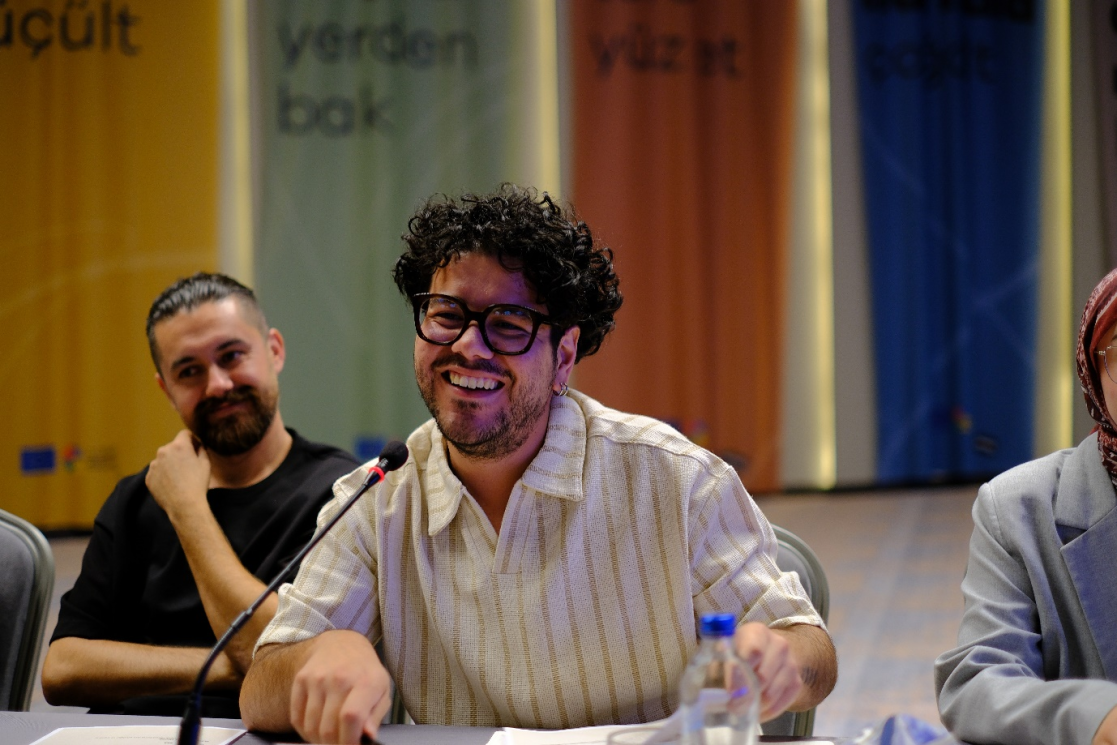
EUROPEAN UNION, 2025

EUROPEAN UNION, 2025
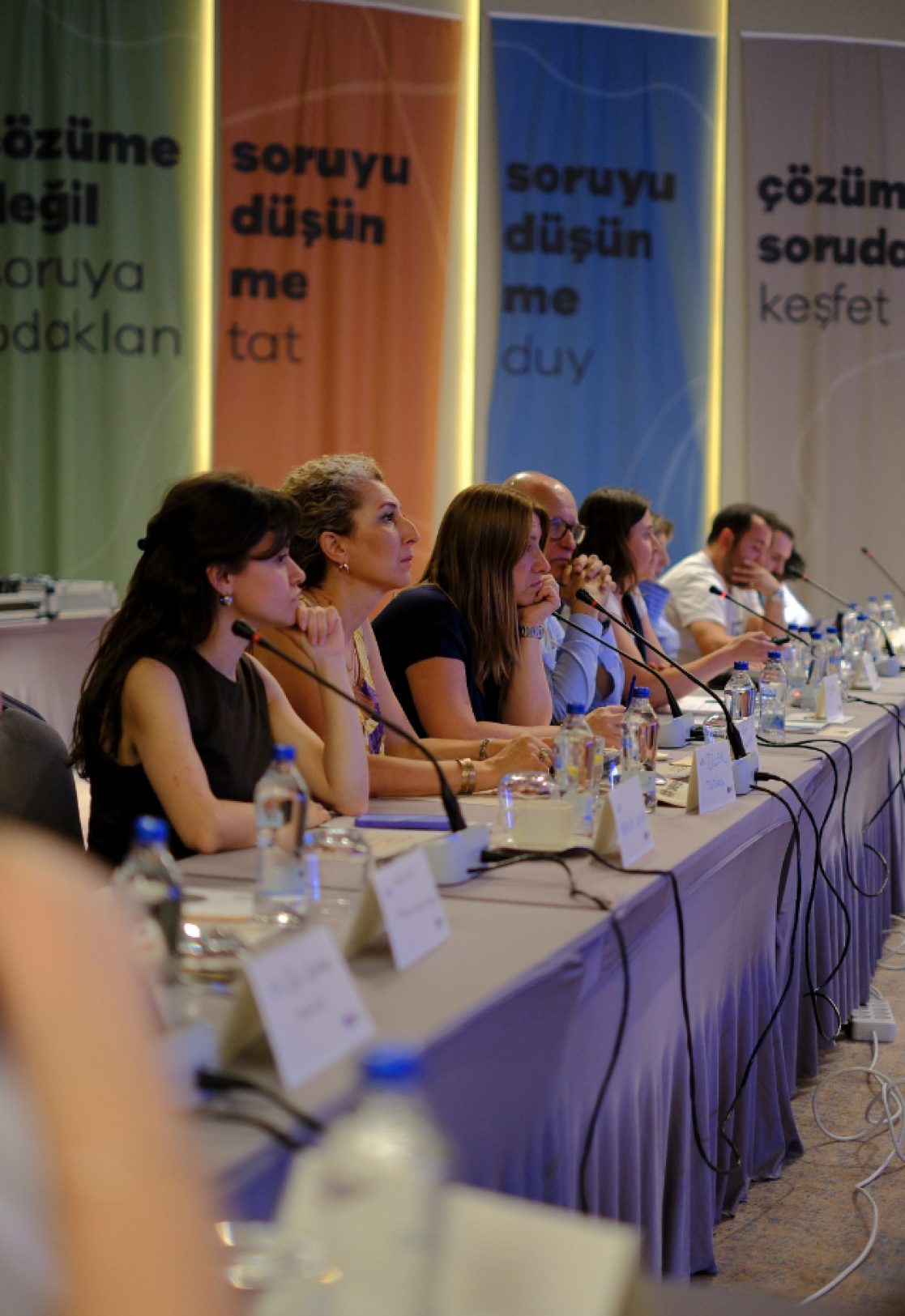
EUROPEAN UNION, 2025
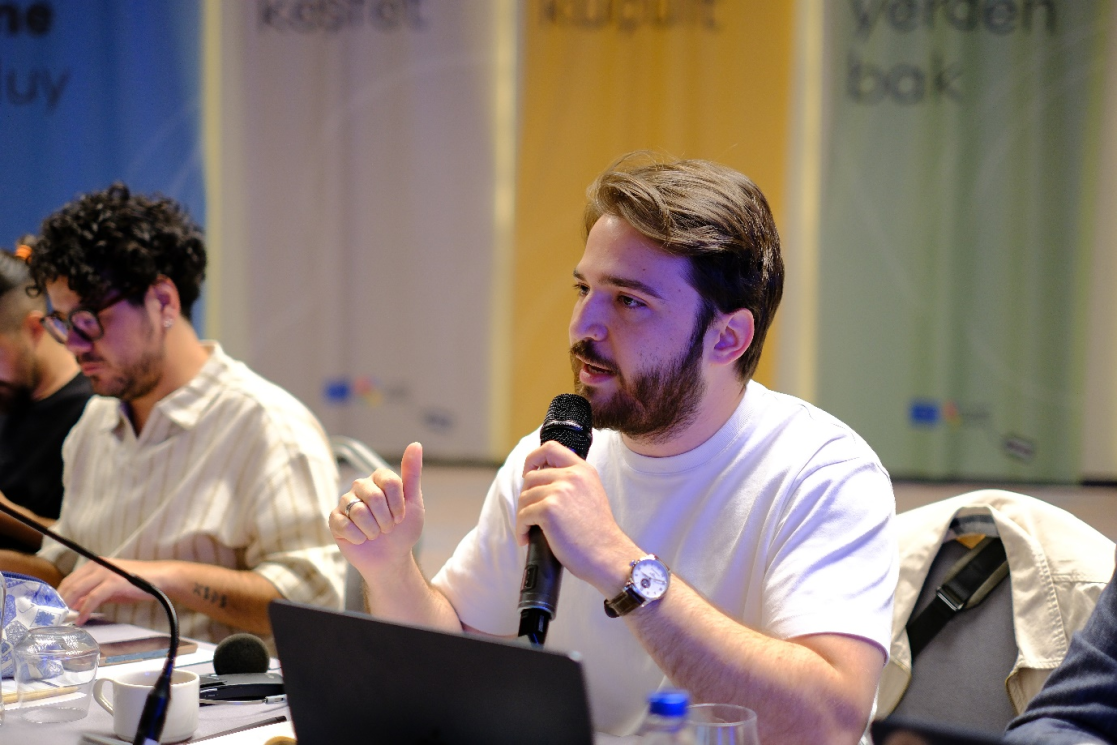
EUROPEAN UNION, 2025
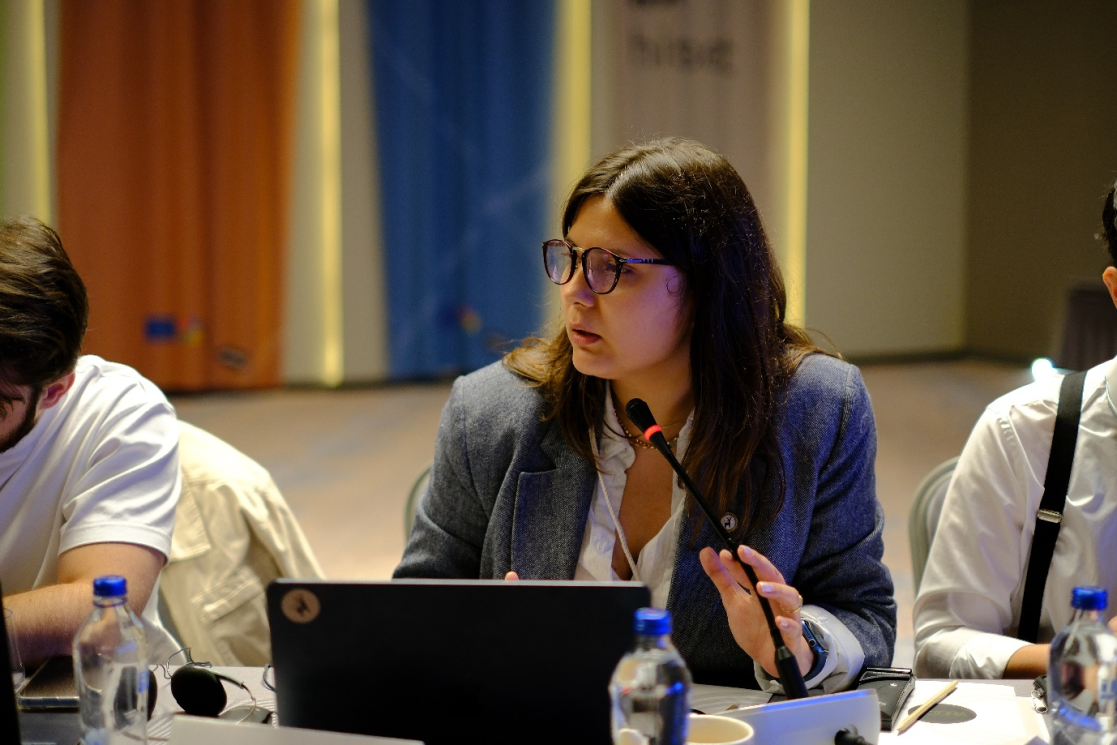
EUROPEAN UNION, 2025
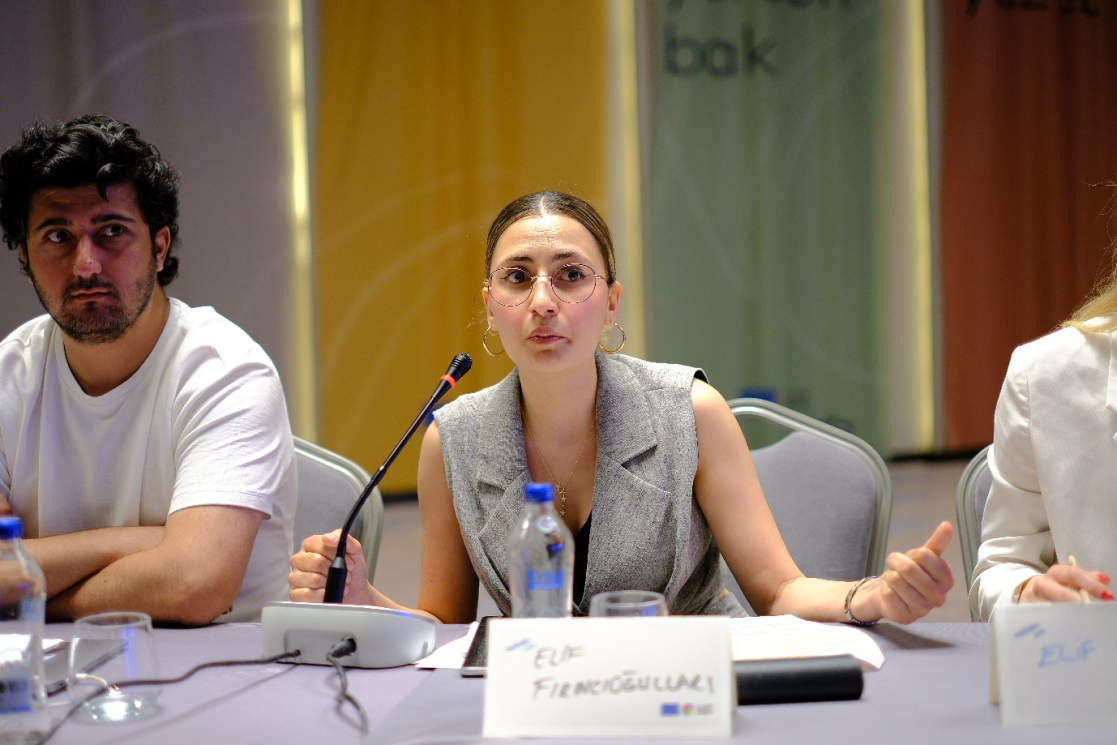
EUROPEAN UNION, 2025





